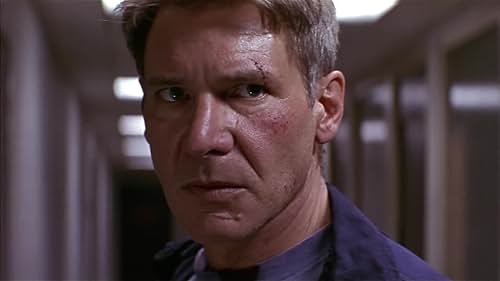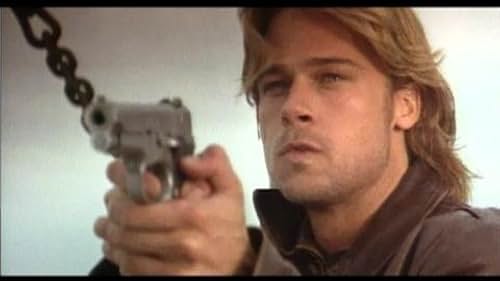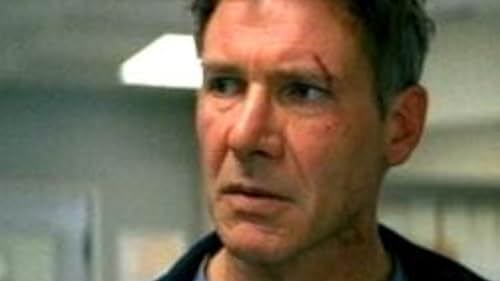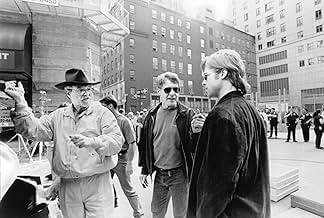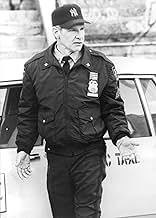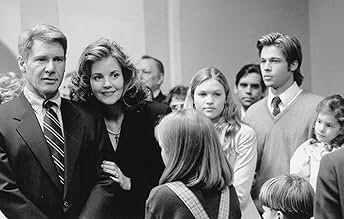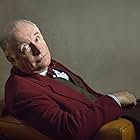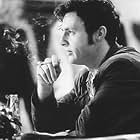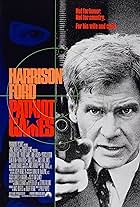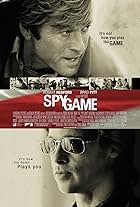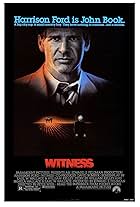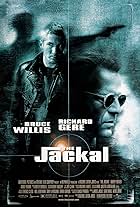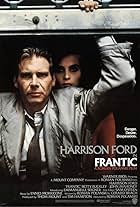A police officer uncovers the real identity of his house-guest, an I.R.A. terrorist in hiding.A police officer uncovers the real identity of his house-guest, an I.R.A. terrorist in hiding.A police officer uncovers the real identity of his house-guest, an I.R.A. terrorist in hiding.
- Awards
- 1 nomination
Rubén Blades
- Edwin Diaz
- (as Ruben Blades)
Ashley Acarino
- Morgan O'Meara
- (as Ashley Carin)
Storyline
Did you know
- TriviaBrad Pitt wanted to leave the production, but was threatened by a lawsuit. In the February 2, 1997, issue of Newsweek, Pitt called the film a "disaster", and said that "it was the most irresponsible bit of filmmaking - if you can even call it that - that I've ever seen. I couldn't believe it". Rumors of fighting on the set (especially over which star would be the focus of the film) plagued the production. The original script was discarded and there were at least seven subsequent rewrites. Pitt said the final version was "a mess". "The script that I had loved was gone," he said. "I guess people just had different visions and you can't argue with that. But then I wanted out and the studio head said, 'All right, we'll let you out, but it'll be $63 million for starters." (Harrison Ford later noted that Pitt "forgot for a moment that he was talking to someone whose job it was to write this s*** down".)
- GoofsTom pursues Frankie up the indoor stairs and then outside across the roof and down the sixteen foot wall, where Frankie escapes past a building. Given that there was no ladder and nothing on which to climb, how did Tom get up the 16-foot wall to get back inside?
- ConnectionsFeatured in Siskel & Ebert: Liar Liar/The Graduate/Selena/Crash/Kolya (1997)
Featured review
As a child in Ireland, Frankie McGuire (Brad Pitt) sees his dad gunned down for his involvement with the Irish Republican Army (IRA). As an adult, McGuire has followed in his dad's footsteps. When the IRA decides it needs more firepower, they hatch a plan that involves McGuire going to the United States to pick up a shipment of Stinger missiles. Through American IRA contacts, McGuire adopts a false identity and housing is arranged with a non-involved Irish family headed by New York City cop Tom O'Meara (Harrison Ford).
There is an impression that The Devil's Own is an action film. The Internet Movie Database has it listed as "Action/Drama/Thriller". Although there are some action elements in the film, this is really a tragic drama, almost in a classical sense, and it's best to approach the film with only that genre in mind. The plot is fairly complex and the film tends to move slowly--much more slowly than a typical actioner or thriller.
The heart of the story is McGuire's relationship with O'Meara and his family. All of the other material--the IRA stuff, the mob and terrorist stuff, the New York City cop stuff, and so on, are not the focus. Those elements are present to help establish characterization, to build the relationship and understanding between McGuire and O'Meara, and to provide a justification for the developments in the film, and particularly the conclusion, which all have poignant things to say about the decisions that we make and why we make them.
The film largely succeeds if seen from this dramatic perspective. It's not quite a 10, however, as it always seems slightly distanced from the viewer. It's an 8 out of 10 for me.
(This comment was originally posted on January 16, 2005 and ended with the above. The following was added much later after reading through some other user comments:) We should not forget that even though it takes elements from the real world to construct its story, The Devil's Own is NOT intended to be journalistic or a documentary. There is no claim that it is giving an accurate portrayal of political situations, and it's not intended to campaign for one side or another in a real-world political situation. This is fiction, folks, and should be judged _as fiction_. For that, you should forget about what you know of the real world, and assess the story, images and sounds you experience from your television. Does the story work as a self-contained entity? Are the performances good? Is it visually attractive/rewarding? Those are the kinds of things we should be judging.
For me, The Devil's Own succeeded as a drama about relationships, with its poignancy arrived at primarily by making two people from very different worlds, with very different outlooks, learn to see things from different perspectives.
That's great if you're very knowledgeable about Northern Ireland in the real world and if you have strong opinions about terrorism. However, your knowledge and opinions on that stuff have nothing to do with this film.
There is an impression that The Devil's Own is an action film. The Internet Movie Database has it listed as "Action/Drama/Thriller". Although there are some action elements in the film, this is really a tragic drama, almost in a classical sense, and it's best to approach the film with only that genre in mind. The plot is fairly complex and the film tends to move slowly--much more slowly than a typical actioner or thriller.
The heart of the story is McGuire's relationship with O'Meara and his family. All of the other material--the IRA stuff, the mob and terrorist stuff, the New York City cop stuff, and so on, are not the focus. Those elements are present to help establish characterization, to build the relationship and understanding between McGuire and O'Meara, and to provide a justification for the developments in the film, and particularly the conclusion, which all have poignant things to say about the decisions that we make and why we make them.
The film largely succeeds if seen from this dramatic perspective. It's not quite a 10, however, as it always seems slightly distanced from the viewer. It's an 8 out of 10 for me.
(This comment was originally posted on January 16, 2005 and ended with the above. The following was added much later after reading through some other user comments:) We should not forget that even though it takes elements from the real world to construct its story, The Devil's Own is NOT intended to be journalistic or a documentary. There is no claim that it is giving an accurate portrayal of political situations, and it's not intended to campaign for one side or another in a real-world political situation. This is fiction, folks, and should be judged _as fiction_. For that, you should forget about what you know of the real world, and assess the story, images and sounds you experience from your television. Does the story work as a self-contained entity? Are the performances good? Is it visually attractive/rewarding? Those are the kinds of things we should be judging.
For me, The Devil's Own succeeded as a drama about relationships, with its poignancy arrived at primarily by making two people from very different worlds, with very different outlooks, learn to see things from different perspectives.
That's great if you're very knowledgeable about Northern Ireland in the real world and if you have strong opinions about terrorism. However, your knowledge and opinions on that stuff have nothing to do with this film.
- BrandtSponseller
- Jan 15, 2005
- Permalink
- How long is The Devil's Own?Powered by Alexa
Details
Box office
- Budget
- $90,000,000 (estimated)
- Gross US & Canada
- $42,868,348
- Opening weekend US & Canada
- $14,274,503
- Mar 30, 1997
- Gross worldwide
- $140,807,547
- Runtime1 hour 51 minutes
- Color
- Sound mix
- Aspect ratio
- 2.39 : 1
Contribute to this page
Suggest an edit or add missing content


